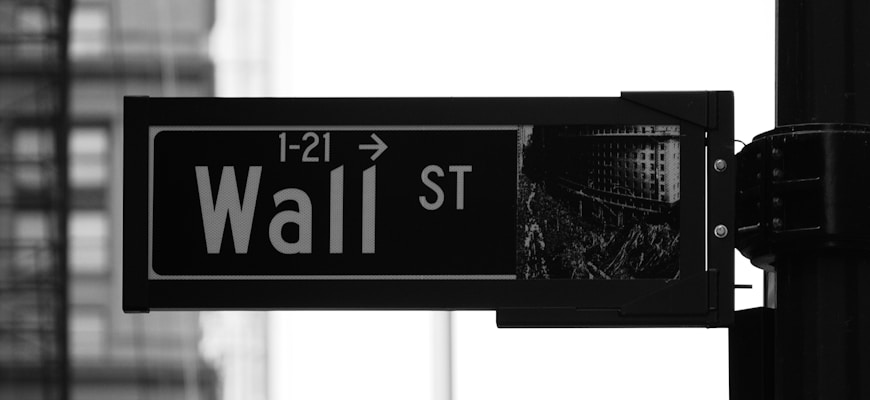Institutional Investors Flock to Crypto: What It Means for Retail Traders

- The Rise of Institutional Investors in the Crypto Market
- How Institutional Investors Are Shaping the Future of Cryptocurrency Trading
- Implications of Institutional Investors’ Interest in Cryptocurrency for Retail Traders
- Understanding the Impact of Institutional Investors on Crypto Prices
- Challenges and Opportunities for Retail Traders in the Face of Institutional Investment
- Strategies for Retail Traders to Navigate the Increasing Presence of Institutional Investors in Crypto
The Rise of Institutional Investors in the Crypto Market
One significant trend in the crypto market is the rise of institutional investors. These are large financial organizations such as hedge funds, asset management firms, and pension funds that are now increasingly getting involved in the cryptocurrency space. This shift towards institutional involvement has been driven by a growing acceptance of digital assets as a legitimate asset class, as well as the potential for high returns in the volatile crypto market.
One of the main reasons why institutional investors are flocking to crypto is the opportunity for diversification. With traditional markets becoming increasingly correlated, institutional investors are looking for alternative assets that can provide uncorrelated returns. Cryptocurrencies, with their unique market dynamics, offer a way for institutions to diversify their portfolios and potentially enhance their risk-adjusted returns.
Another factor driving institutional interest in crypto is the growing infrastructure to support institutional investment. Over the past few years, there has been a significant improvement in custody solutions, trading platforms, and regulatory frameworks tailored to the needs of institutional investors. This has made it easier for institutions to enter the crypto market with confidence, knowing that their assets are secure and that they are operating within the bounds of the law.
As institutional investors continue to pour money into the crypto market, retail traders stand to benefit in several ways. Firstly, increased institutional participation can lead to greater liquidity in the market, making it easier for retail traders to buy and sell cryptocurrencies at competitive prices. Additionally, institutional involvement can bring more stability to the market, reducing the extreme price fluctuations that can be detrimental to retail traders.
Overall, the rise of institutional investors in the crypto market represents a significant shift in the landscape of digital assets. While this trend may bring challenges such as increased competition for retail traders, it also presents opportunities for greater market efficiency and maturity. As institutional participation continues to grow, it will be important for retail traders to stay informed and adapt their strategies to navigate this evolving market environment.
How Institutional Investors Are Shaping the Future of Cryptocurrency Trading
With the growing interest from institutional investors in the cryptocurrency market, there is a significant impact on the future of cryptocurrency trading. These large financial entities bring a level of credibility and stability to the market, which has historically been known for its volatility and uncertainty.
Institutional investors are known for their deep pockets and long-term investment strategies, which can help bring more liquidity to the cryptocurrency market. This increased liquidity can lead to more efficient pricing and reduced price manipulation, making it a more attractive market for retail traders to participate in.
Furthermore, the entry of institutional investors into the cryptocurrency market can also lead to more regulatory clarity and oversight. This can help reduce the risk of fraud and market manipulation, providing a safer trading environment for all participants.
Overall, the presence of institutional investors in the cryptocurrency market is a positive development for retail traders. It can lead to increased market stability, liquidity, and regulatory oversight, which can ultimately help shape the future of cryptocurrency trading in a positive direction.
Implications of Institutional Investors’ Interest in Cryptocurrency for Retail Traders
With the growing interest of institutional investors in cryptocurrency, retail traders are facing a new landscape that presents both opportunities and challenges. The influx of institutional money into the crypto market has the potential to bring more stability and legitimacy to the space. This increased credibility could attract more retail traders who were previously hesitant to enter the market.
However, the involvement of institutional investors also has the potential to impact retail traders in various ways. One implication is increased competition for retail traders, as institutional players often have more resources and expertise to execute large trades. This could potentially lead to heightened volatility and decreased profitability for retail traders.
On the other hand, the entry of institutional investors could also lead to greater liquidity in the cryptocurrency market. This increased liquidity could result in tighter spreads and more efficient pricing, benefiting retail traders by providing better trading conditions. Additionally, the interest of institutional investors could lead to the development of new financial products and services tailored to retail traders, further expanding the opportunities in the crypto market.
Understanding the Impact of Institutional Investors on Crypto Prices
Understanding the impact of institutional investors on cryptocurrency prices is crucial for retail traders looking to navigate the increasingly complex market. Institutional investors, such as hedge funds, family offices, and pension funds, have been flocking to crypto in recent years, bringing with them significant capital and market influence.
When institutional investors enter the crypto space, they can have both positive and negative effects on prices. On the positive side, their involvement can bring greater liquidity, increased market stability, and heightened legitimacy to the asset class. This can attract more retail traders, driving up demand and ultimately prices.
However, institutional investors can also introduce volatility to the market. Their large trades can cause sudden price swings, leading to uncertainty and potential losses for retail traders. Additionally, their market-moving decisions can create a herd mentality among retail investors, exacerbating price fluctuations.
Overall, understanding how institutional investors impact crypto prices can help retail traders make more informed decisions. By staying informed about institutional activity, retail traders can better anticipate market trends and position themselves for success in the ever-evolving crypto landscape.
Challenges and Opportunities for Retail Traders in the Face of Institutional Investment
Retail traders face both challenges and opportunities in the wake of increased institutional investment in the cryptocurrency market. On one hand, the influx of institutional money can lead to increased volatility as large investors make big moves. This can make it difficult for retail traders to predict market movements and make informed decisions.
However, there are also opportunities for retail traders to capitalize on the presence of institutional investors. With more big players entering the market, there is potential for increased liquidity and more stable pricing. Retail traders can also look to institutional investors for clues on market trends and make more informed trading decisions based on their actions.
Overall, retail traders need to stay informed and agile in order to navigate the changing landscape of the cryptocurrency market. By understanding the challenges and opportunities presented by institutional investment, retail traders can position themselves for success in this evolving market.
Strategies for Retail Traders to Navigate the Increasing Presence of Institutional Investors in Crypto
As institutional investors continue to show interest in the cryptocurrency market, retail traders may feel overwhelmed by the changing dynamics. However, there are strategies that retail traders can implement to navigate this increasing presence of institutional investors:
- Diversification: Retail traders should consider diversifying their cryptocurrency portfolio to minimize risk. By spreading investments across different assets, traders can protect themselves from sudden market movements driven by institutional investors.
- Stay Informed: Keeping up with the latest news and developments in the cryptocurrency market is crucial for retail traders. By staying informed about institutional investor activity, traders can make more informed decisions about their investments.
- Technical Analysis: Utilizing technical analysis tools can help retail traders identify trends and potential entry/exit points. By analyzing price charts and market data, traders can make more strategic decisions in the face of institutional investor activity.
- Long-Term Perspective: Instead of reacting impulsively to short-term market fluctuations, retail traders should adopt a long-term perspective. By focusing on the overall growth potential of the cryptocurrency market, traders can withstand the volatility caused by institutional investors.
By implementing these strategies, retail traders can effectively navigate the increasing presence of institutional investors in the cryptocurrency market. While institutional investors may bring more volatility and uncertainty, retail traders can still find success by staying informed, diversifying their portfolio, and adopting a long-term perspective.




